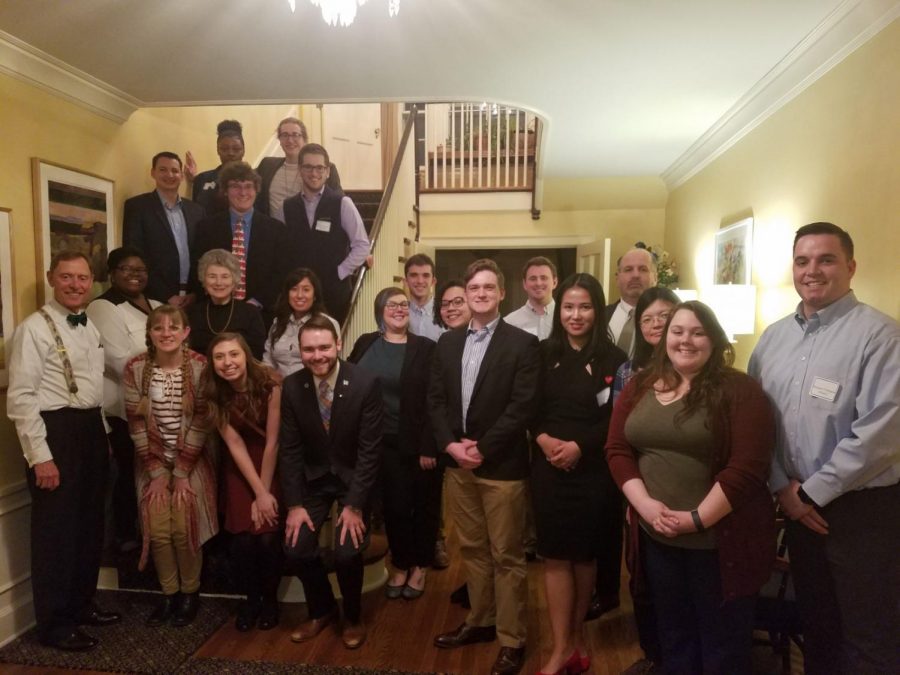Round table at Farley household discusses the importance of internet security
February 17, 2018
A number of students from different backgrounds, both culturally and scholastically, gathered at the President’s home Feb. 15 to enjoy an evening with Jerry and Susan Farley along with special guest speaker, Jim Tagliareni, Chief Information Officer of Washburn.
Tagliareni opened up the floor of the round table by asking students if they realize the things we do everyday online that can put our privacy at risk. Privacy can be breached not only by people who wish to steal information and use it for their own gain, but also by individuals revealing their own personal details openly for people to access.
“We willingly give up data as much as data is being taken away,” Tagliareni said. “One in four social media users have posted personal info of a sensitive nature online.”
Tagliareni also spoke about how online crime that calls for the trading of data is much more profitable than the standard crime that may be seen in typical robberies or thefts. After giving his introduction into the topic of how to make sure the internet is being used as a safe and healthy space, Tagliareni posed several questions to the group to address once they split up into smaller groups for dinner and discussion.
Students proceeded to get plates of lasagna and began to answer the questions that Tagliareni presented to them. In one group, he conducted a discussion with President Farley and brought up how he himself had experienced two breaches in online security. Farley specifically mentioned how even if you take precautions after a breach, there can still be risk.
“Even if you delete your account and cut up your card, the info is still out there,” President Farley said.
Zac Surritt, junior public administration major, brought up that when it comes to finding ways to defend ourselves, we need to be aware of the context of each situation.
“It depends on a case by case basis,” Surritt said. “If someone gives away a small bit of info, it may not seem huge, but [it] can be used to access other, more sensitive information.”
After the discussion finished within the smaller groups, a large group discussion led by Tagliareni took place. Students conversed and came to a consensus about many facets of internet security. Specific discussion around the topic of the security debate surrounding the San Bernardino shooter of last year came up as students evaluated the ethics of a company providing a government organization with a backdoor into a cellphone.
“The minute that you set into case law that a phone must be unlocked in extreme situations, then it opens it up to misuse,” Jayson Quicksall, junior biology major, said. “Then what constitutes an extreme situation?”
Quicksall also questioned if providing access to a phone is given then what are we providing access to?
“What kind of things are we giving up,” Quicksall asked. “Facebook, email, everything?”
Despite their different opinions on certain matters, the students agreed with Tagliareni that the best way to help people secure their privacy online is to provide them with proper education. A few students came up with the term “Home ec for the future.”
At the end of the evening, Tagliareni asked students if, despite all of the negative and frightening discussions they’d had about the internet, these technologies had provided any positives. Students enthusiastically began to discuss advances in communication, medicine, vehicle assistance, finance and information gathering. The evening may have been focused on discussing on how the internet can be dangerous, but one thing is for sure, the students agreed it is also a powerful, useful




